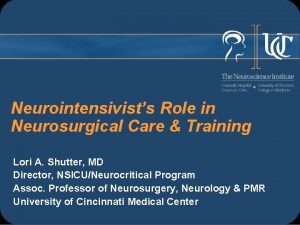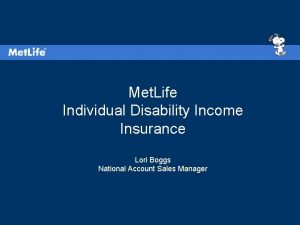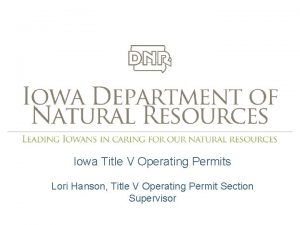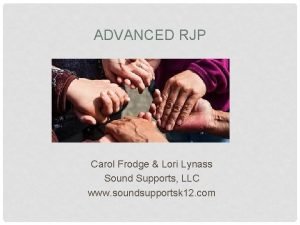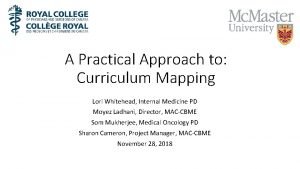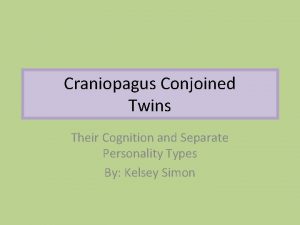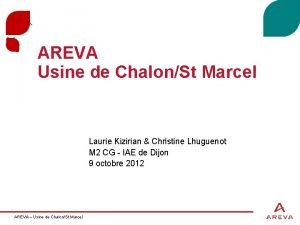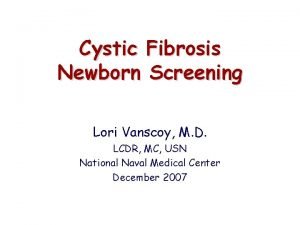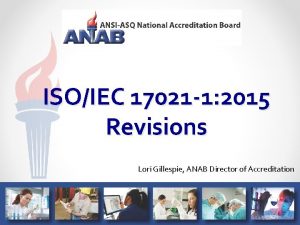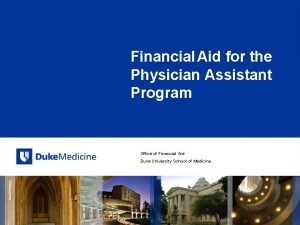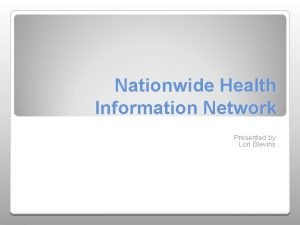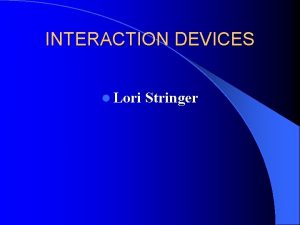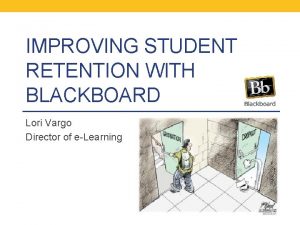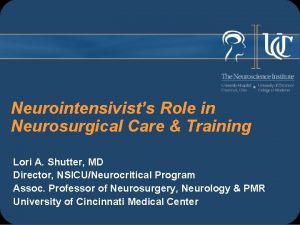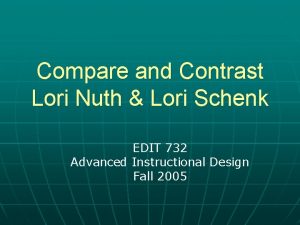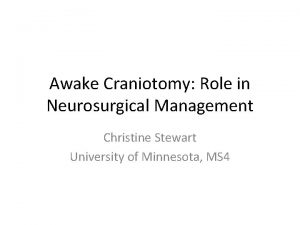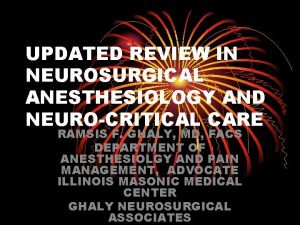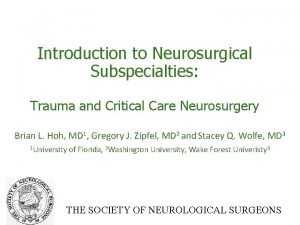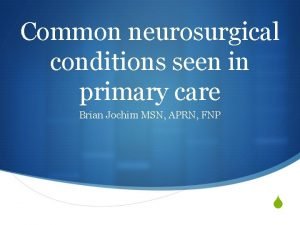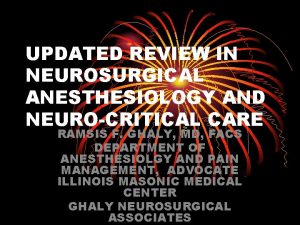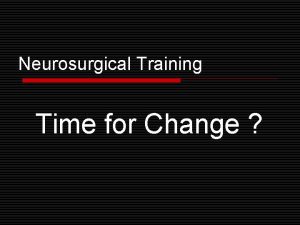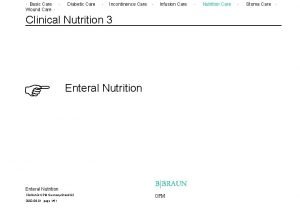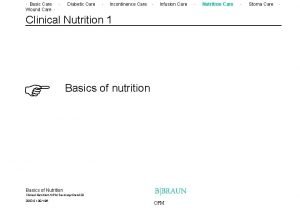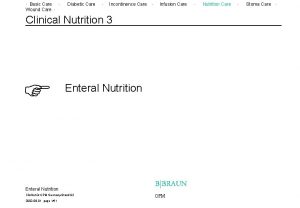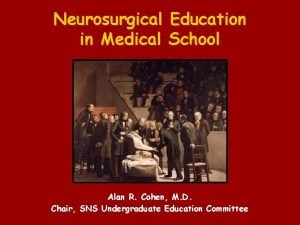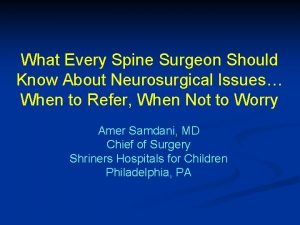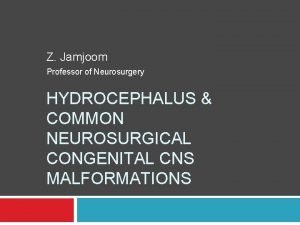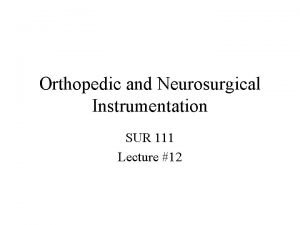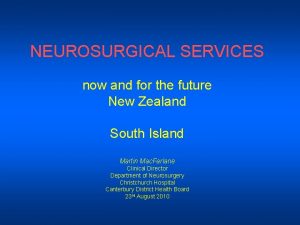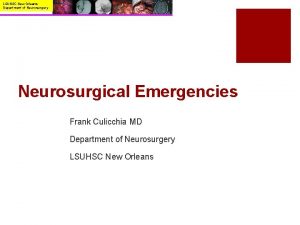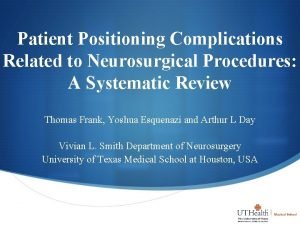Neurointensivists Role in Neurosurgical Care Training Lori A



























- Slides: 27

Neurointensivist’s Role in Neurosurgical Care & Training Lori A. Shutter, MD Director, NSICU/Neurocritical Program Assoc. Professor of Neurosurgery, Neurology & PMR University of Cincinnati Medical Center

Objectives q Describe the specialty of neurocritical care. q Review the requirements for certification in neurocritical care. q Discuss the role of a neurointensivist in neurosurgical residency training.

Modern Intensive Care q “Intensive-care medicine has become the art of managing extreme complexity—and a test of whether such complexity can, in fact, be humanly mastered. ” Atul Gawande, The New Yorker, 1/6/08 q Bundles; Check lists; Time Outs q Protocols; Guidelines; Evidence-based Care q Multidisciplinary; Collaborative q JACHO; CMS

What is a Neuro-intensivist? q A physician devoted to comprehensive multisystem care of the critically ill neurological patient. Assumes a primary care role for patients in the ICU, coordinating both neurological & medical management. q Has a unique concern with the interface between the brain and other organ systems in the setting of critical illness. q Takes on responsibility for various elements of ICU care that might otherwise be provided by multiple subspecialists (i. e. cardiology, endocrinology, infectious diseases, pulmonary medicine, and neurology). q Proficiency with standard ICU monitoring, as well as specialized neuro-monitoring and interventions. q

Are Neurointensivists Needed? q Disclosure: I am biased on this topic q Advances in the treatment of neurological conditions Advances in critical care Uniqueness of the neurological patient Increased patient / family awareness Collaboration for professional & academic growth Multi-disciplinary team care q q q

History of NCC q Neurological Intensive Care AAN course ’ 80 – 87 q q Gap from ’ 88 – 99, restarted in 2000 Subspecialty development: late ’ 80 s – early 90 s MGH: Allan Ropper q Columbia: Matt Fink q Hopkins: Dan Hanley and Cecil Borel q UVa: Tom Bleck q q Growth through Neurology departments, or other intensivists in units with high neurosurgical volumes q Focus changed to Neurocritical Care, NOT specialized stroke units

Organized NCC q Organized NCC has made major strides in last decade AAN CCEN Section* q Neurocritical Care Society* q SNACC* q AANS/CNS Joint Section on Neurotrauma & Critical Care q German Neurocritical Care Working Group q q Neurocritical Care Society 2007 saw the 5 th Annual Meeting q 651 physician members (105 residents); 774 total members q q NCC recognized as a subspecialty by UCNS* in 2006


Neurocritical Care q Dedicated Neuro-ICUs with fellowship trained neurointensivists in the US = 50* q q 29 states; 39 cities & DC NCC Program Models Division of Neurology vs Neurosurgery vs Anesthesiology q Department of Critical Care – Multidisciplinary q q Neuro-ICU models Closed vs ‘Semi-closed’ vs Open q Primary providers vs Co-attendings vs Consultants q

Neurocritical Care Certification q q First certification exam in NCC in 12/07 Eligibility for exam: fellowship or practice tracts. Fellowship tract: documentation of training in an accredited NCC fellowship program q Practice tract available until 2012 q q Exam components Neurological – 48% q General medical critical care – 47% q Procedural – 5% q q Current diplomates in NCC = 91. q Next examination – 12/08

Neurocritical Care Training q Fellowship Training Programs 39 in the US (in 18 states) q < 25 currently active q 2 year training curriculum developed based on UCNS / ACGME guidelines q Program accreditation through UCNS starting in 2007. 11 programs submitted applications. q q Specialties eligible for training in NCC: neurology, neurosurgery, emergency medicine, anesthesia, internal medicine, pediatrics

NCC Training Requirements q Duration of training 12 months of ICU experience q > 50% focusing on primarily neurological & neurosurgical conditions q Recommend 18 – 24 months to provide adequate elective & off-service time q q Additional qualifications q q Provider / instructor in ACLS, ATLS, PALS, FCCS Faculty Provide direct supervision in ICU q Demonstrate adequate training / experience in NCC q Minimum of 25% of time dedicated to NCC q

Neurological Conditions q q q q Cerebrovascular Neurotrauma Seizures Neuromuscular diseases Neuro-oncology Infections Toxic-metabolic Inflammation / demyelination q q q q Encephalopathies Movement disorders Neuroendocrine Clinical syndromes Peri-operative neurosurgical care Neurorehabilitation Pharmacotherapeutics

EEG box ICP monitor Pbt. O 2 Feeding Tube ET Tube CVL EEG leads

Tube feed pump EEG Monitor Ventilator IV Pumps Pbt. O 2

General Medical Conditions Cardiovascular q Shock / resuscitation q Coronary Ischemia q Neurogenic Cardiac Abnormalities q Cardiac Arrhythmias q Hypertensive Crisis q Pulmonary edema: cardiogenic & non-cardiogenic q Pulmonary embolism q Acute aortic / peripheral vascular disorders q Advanced cardiovascular monitoring & derived parameters

General Medical Conditions Pulmonary q Respiratory failure q Pneumonitis / pneumonia q Adult Respiratory Distress Syndrome q Upper airway obstruction q COPD / asthma q Neurogenic breathing patterns q Mechanical ventilation: modes, weaning, monitoring q Pleural diseases: empyema, effusion q Pulmonary hemorrhage / hemoptysis q Sleep apnea

General Medical Conditions Renal q Fluids / electrolytes q Acute Renal Failure q q q Drug dosing Acid-base disorders Hemodialysis Rhabdomyolysis UTI / Urosepsis GI q GI bleed q GI perforation q Ileus q Obstruction q Hepatic failure q Pancreatitis

General Medical Conditions Metabolic/ Endocrine q Nutrition q Thyroid function q Adrenal crisis q Diabetes q Pheochromocytoma q Systemic Inflammatory Response Syndrome q Fever/thermoregulation Infectious q Antibiotics q Drug resistance q Hospital acquired infections q AIDS q Central fever

General Medical Conditions Hematologic q Hemostasis defects & therapy q Blood component rx q Hemolytic disorders q Hypercoagulable states q DVT prophylaxis q Anticoagulation q Transfusion reactions q q q q Immunology Transplantation General Trauma Burn management ICU Agitation Monitoring Prognostication

Procedural Competencies q q q Arterial catheters Central venous catheters Pulmonary artery catheters Management of vasoactive medications Airway Management Non-intubated q Direct laryngoscopy q Endotracheal intubation q Mechanical ventilation q CPAP/Bi. PAP ventilation q q q Interpretation of bedside pulmonary function CPR/ACLS (with certification)

Procedural Competencies q q q Lumbar puncture; Shunt / ventricular drain tap Conscious sedation & barbiturate anesthesia Neuro-monitoring ICP, CPP, Pbt. O 2, Sjv. O 2 management q Management of EVDs q TCDs q EEGs q q q Management of plasmapheresis & IVIG IV & intraventricular thrombolysis Interpretation of neuroimaging studies Moderate hypothermia

Training Residents in NCC q Work hour restrictions have damaged the ICU experience for residents Attitude change – from physicians to shift workers q They are less involved and many are less happy q Frequent transfers to other services rather than managing the problems q Attendings aren’t reading sleep deprivation literature because we are doing the resident’s work! q q PGY-1 s (neurosurgery, neurology, others) have been added to the ICU rotation q BUT – even the best ones have trouble being alone in an ICU that early

Training Residents in NCC q Neurotrauma / Critical Care Fellowships q q It will not meet criteria for NCC Certification q q Is this adequate critical care training? Does that matter? That Depends Are you managing anything other than trauma? Do you want to? q Does it provide adequate exposure to medical critical care? q What are you going to focus on for your career? q Do you want extra certifications? q

Training Residents in NCC q I don’t have the answer q Exposure to the specialty q Division of Neurosurgery q Collaboration q Interwoven in didactic / conference sessions q Dedicated ICU time q Not just 30 minutes on am rounds! q PGY-1 year q As part of neurology requirement q Advanced training / Enfolded ‘fellowship’

What to do? q Develop connections with NCC organizations q Work with NCS leadership to address issues specific to neurosurgical training q Decide if NCC should be a focus of your program q Develop a curriculum with your neurointensivist q Based on fellowship training requirements

Thank You
 Neurointensivists
Neurointensivists Primary secondary tertiary medical care
Primary secondary tertiary medical care Lori leiter
Lori leiter Lori fresina
Lori fresina Lori boggs
Lori boggs Lori hanson dnr
Lori hanson dnr Elex searching for clues
Elex searching for clues Lori lynass
Lori lynass Curriculum mapping template
Curriculum mapping template Lori carl
Lori carl Lori stromness
Lori stromness Climatogram maker
Climatogram maker Lori gillen sba
Lori gillen sba Conjoined twins trishna and krishna
Conjoined twins trishna and krishna Lori kizirian
Lori kizirian Lori simon-rusinowitz
Lori simon-rusinowitz Danielle lori doci
Danielle lori doci Lori cabrera
Lori cabrera Lori vanscoy
Lori vanscoy Lori kempe
Lori kempe Maksimo lori
Maksimo lori Lori raetzman
Lori raetzman Lori gillespie
Lori gillespie Duke pa school tuition
Duke pa school tuition Lori marsh
Lori marsh Lori blevins
Lori blevins Lori stringer
Lori stringer Blackboard uscb
Blackboard uscb
